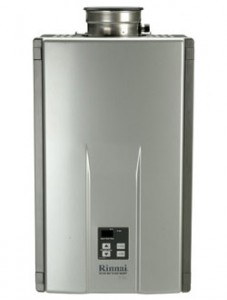 Water heaters are one of the most energy inefficient appliances in your home. Having hot water is always important, especially for showering and washing your clothes. When it comes to buying a new water heater, you have two main choices: traditional tank water heaters and tankless water heaters. A tankless water heater is the better option but many people do not understand the concept of a tankless water heater or its benefits and stick with their traditional water heater.
Water heaters are one of the most energy inefficient appliances in your home. Having hot water is always important, especially for showering and washing your clothes. When it comes to buying a new water heater, you have two main choices: traditional tank water heaters and tankless water heaters. A tankless water heater is the better option but many people do not understand the concept of a tankless water heater or its benefits and stick with their traditional water heater.
A tankless water heater, as you might guess from the name, does not have a tank like a traditional model. In a traditional model, water is heated and stored in the tank. Since the water remains heated in the tank, it uses more energy to keep it hot. Additional water is wasted while waiting for hot water to flow through your faucets. A traditional water heater will need to be serviced regularly and eventually replaced due to calcium deposits left by the sitting water. Heating water on demand is one of the major benefits of a tankless system. Instead of storing hot water, water is heated through a series of pipes as it flows out.
That is not the only reason to choose a tankless water heater. Another plus is conserving water since you won’t have to run cold water while waiting for hot water to start flowing. They are also cleaner because there is no build up rust or residue left from sitting water. They take up far less space because they are compact and can be placed near areas that need hot water the most such as kitchens and bathrooms. Another plus is that the system is quiet unlike the traditional models which make noise when heating your water.
One way to ensure hot water at all times is to have a unit large enough for the whole house, or use two or more smaller units installed in the kitchen, bathroom, and laundry room. Having a professional installation is recommended unless you have previous experience. With the rising cost of utilities, it makes sense to upgrade to a tankless water heater, it will save money, energy, and water.
